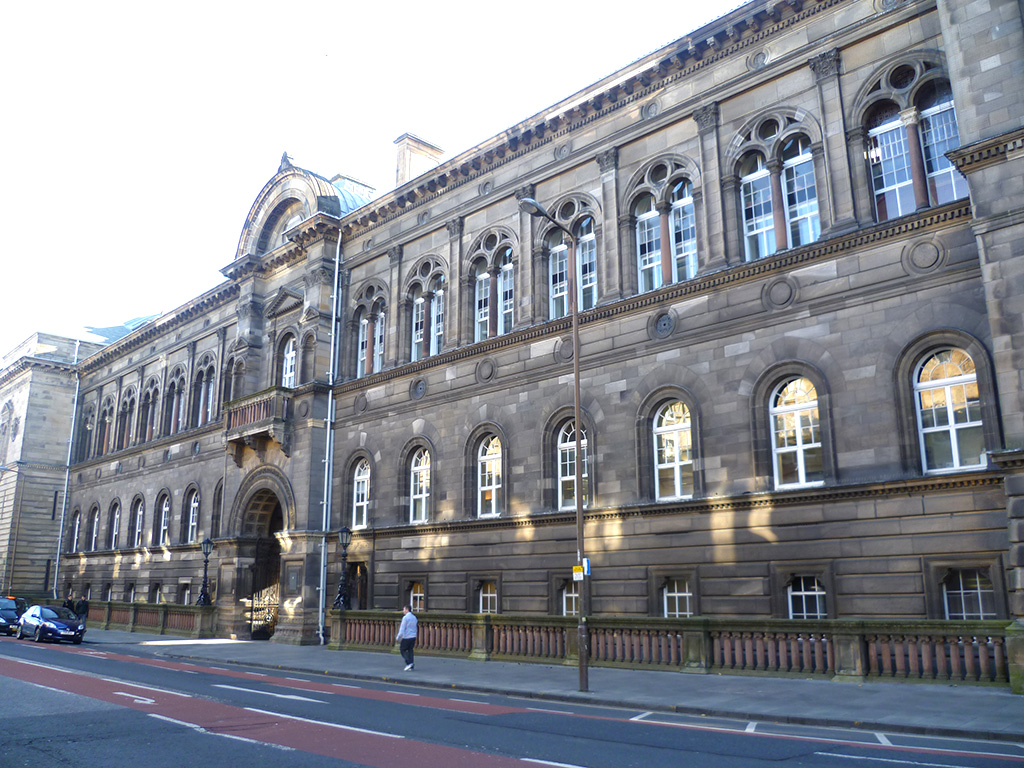University of Edinburgh
Your guide to courses, accommodation and what it is like to study at University of Edinburgh. REQUEST INFORMATION
KEY INFORMATION:
Edinburgh is located on the east coast of Scotland and is the capital city of Scotland. It has a rich history and is a UNESCO world heritage site. The population of Edinburgh is just under half a million.



UG 26850
PG 12920



Six steps to University of Edinburgh
Our method to your success
FREE CONSULTATION MEETING
REPORT & INSTITUTION SHORTLIST
APPLY & RECEIVE AN OFFER
WOO HOO! YOUR OFFER IS ACCEPTED
ARRIVAL & POST ARRIVAL SUPPORT
WE ARE WITH YOU EVERY STEP OF THE WAY
LOCATION:
Edinburgh has its own airport and there are direct flights to many European destinations including to Heathrow and Amsterdam (Schipol) with onwards connecting flights across the globe. The typical lowest average temperature in Edinburgh is in January, 1.5 degree. In July, the warmest month of the year, the average high temperature is between 16-20 degrees.
REQUEST INFORMATION..

Request Information - University Courses
HISTORY:
Edinburgh University was founded in 1583 as “the Town’s College” by the Edinburgh town council under a charter granted in 1582 by King James VI, who later became King James I of England. In 1621 an act of the Scottish Parliament accorded all the rights and privileges of Scotland’s three older universities to the Town’s College, after which it gradually assumed the name of the University of Edinburgh. The university initially consisted of a liberal arts college and a school of divinity. Schools of medicine and law were established in the early 18th century, and faculties of music, science, arts, social sciences, and veterinary medicine were subsequently added.
LOCATION:
Edinburgh has 5 campuses. The main Central area houses most of the faculty buildings and is centrally located in the city. The other campuses are; Little France-medical research facility, Kings Buildings-science and engineering based here, Easter Bush-veterinary sciences housed here and Western General-where the western general hospital is based and where the medical education centre is. The main hall of residence, Pollock which houses 1,900 students is near the Central area campus-just over a mile away. The distances between the other campuses and the main Central area are; Little France-2.8 miles, Easter Bush-7.1 miles, Western General-3.1 miles, Kings Buildings-2.8 miles.
RANKING:
University of Edinburgh is currently ranked =30th in the Times Higher Education rankings. Edinburgh is ranked 38th in the Shanghai Tong Jiao rankings. Edinburgh is a member of the Russell group of universities.University of Edinburgh is ranked 118th in the National Student Survey Satisfaction rankings.
INTERNATIONAL:
Approximately each year around 46% of all Edinburgh’s students come from overseas. The alumni body at Edinburgh comprises of students from 240 different countries.
SIZE:
Latest figures indicate that Edinburgh has over 39,000 students. 26,850 (over 68%) are undergraduates and approximately 12,920 are postgraduates.
EMPLOYMENT:
HESA government statistics show that 94.3% of Edinburgh’s graduates are in employment or in further education 6 months after graduation. However, a breakdown of post-graduation employment by course, showing the split into professional/managerial positions, rather than general employment figures, is available from Unistats an independent source of university data. For more information, please visit the REF Information page.
FACILITIES:
Edinburgh has over 240 societies and clubs. The university also has several student union buildings: The Potterrow has shops, banks as well as a venue holding 1,000 people. The Teviot has various rooms including a debating hall. Pleasance has a theatre and year round programme of live comedy, film and theatre performances.Sports facilities centrally include a swimming pool, gym. 2.5 miles from the city centre is the Peffermill playing fields with floodlit artificial pitches, multiple rugby & hockey pitches.80 miles from Edinburgh is the university’s Firbush outdoor centre-offering sailing, windsurfing, mountain biking and cross country skiing and other outdoor pursuits.
ACCOMMODATION:
There are catered halls of residence at Pollock Halls which is a large complex offering accommodation for around 1,900 students and catered accommodation for 650 of these students. There are single en suite rooms, as well as twin en suite rooms available.The lowest price for a single room with shared bathroom and kitchen facilities is £118.25 per week.An example price for catered accommodation is £195.00 per week at Chancellors Court.
COST:
Please note Scottish undergraduate honours degrees typically take 4 years to complete.International students
International undergraduate tuition fees:
Fees for full time undergraduate courses start at £23,100 for most Arts, Humanities, Law, and Social Science subjects, rising to £30,400 for most Science and Engineering courses. Medicine - £49,900
SUBJECT AREAS:
REF (Research Excellence Framework) was an independent government review conducted into the quality of research at UK universities and published in December 2014. This information highlights subjects of specialism within each university. We have listed all subject areas where at least 60% of the research conducted in these specific fields has been graded 3 or 4 stars. (4 stars being the highest ranking REF award). For more information, please visit the REF Information page.
ONLINE COURSES:
Edinburgh offers a wide range of over 70 online masters and certificate programmes. Many of the courses are medically focused, such as Anatomical Sciences, and Paediatric Emergency Medicine. There are also Veterinary courses such as Equine Science, and International Animal Welfare, and Environmental courses, including Global Environment Challenges, as well as LLM Law and MSc History. A range of short, free online courses are also available.
Review
Coming Soon
 LOOKING FOR AN ONLINE COURSE?
Our team can help you find a relevant course for your study.
BOOK A CALL
LOOKING FOR AN ONLINE COURSE?
Our team can help you find a relevant course for your study.
BOOK A CALL
DOWNLOAD YOUR FREE GUIDE TO A QUALITY UK EDUCATION
Sign up to our free Newsletter and you'll get a free copy of our guide to accessing a UK education to help you navigate the entire process.
REQUEST INFORMATION..
Get free instant access to exclusive content and join our monthly email guide
We’re with you every step of the way and will keep you updated on the latest UK education news. Find out more about joining.